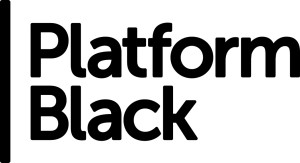John Regan of Platform Black

Today we have John Regan of Platform Black. Our questions are in bold.
– – – – –

Who are you and what’s your background?
I’m a serial entrepreneur and angel investor. I have founded and developed three businesses from startup to trade sale. Having worked with banks in all of these companies, it’s interesting now to be working with Platform Black, focused on providing alternative finance. In an environment where I thought we were going to end up competing with the banks, I find myself witnessing the market developing and working alongside them, more in partnership than in competition with them.
What is your job title and what are your general responsibilities?
My job title is Business Development Director. On a day-to-day basis I try to make sure the company continues to innovate. I’m often involved in working out how we can develop new products and I identify and meet with potential strategic partners. These might be businesses who can provide liquidity for our clients by investing across our platform, or those we can partner with to generate more clients.
I’m also an angel investor and I’m particularly interested in the Fintech and alternative finance markets so I keep my ear to the ground regarding new startup businesses and new ideas.
Can you give us an overview of your business?
Platform Black is an alternative finance provider which uses Fintech to provide working capital funding to SMEs and small corporates. We have also launched a supply chain finance product which enables larger SMEs and corporates to provide shorter payment terms. Our approach hinges on providing flexible finance quickly and easily.
Tell us how you are funded.
Myself and a business partner provided seed funding for the business in 2012. We later received PE funding from GLI Finance in September 2013, so the funding is a combination of angel investment and institutional money.
Why did you start the company? To solve what problems?
I became involved as a seed funder of Platform Black in its early stages, having taken an interest in alternative finance in 2008. Platform Black solves two problems that I have firsthand experience of. Firstly, it provides a good return on capital for an investor and secondly it frees up working capital for SMEs in circumstances where funding is often hard to find.
With newspaper headlines about SMEs crying out for cash to survive, I found that there was an obvious opportunity. With a business partner, I began to investigate how this could be achieved. We were a long way down the line in developing a business plan for our own startup when we came across Platform Black at an angel investor networking event. They had developed the business along the same lines as our thinking, so we decided to take up the entire funding round rather than investing in our own startup.
Platform Black helps SMEs to raise working capital by securing finance against unpaid invoices. The cash is raised from high net worth individuals and institutions, who receive a return on their investment when the debt is repaid. In many cases SMEs have been unable to raise funding from the banks or have been put off by high bank fees and inflexible terms.
Who are your target customers? What’s your revenue model?
Our target customers are profitable SMEs which have limited access to bank funding.
We provide a marketplace where SMEs can raise funding against unpaid invoices in an auction. In order to provide flexibility we charge one simple finance fee. There are no entry fees, exit costs nor facility fees. The finance fee includes a transaction fee which is paid to Platform Black and a cost of money which is paid to the provider of the funding.
If you had a magic wand, what one thing would you change in the banking and/or Fintech sector?
I would change preconceived ideas of certain types of funding. For instance, our product relies on assigning a receivable in exchange for advancing funds. Many potential clients see the concept of “selling an invoice on for a discount” as finance of last resort. This is shortsighted thinking, as an invoice is simply a convenient way of providing a form of security. A discount is the same concept as paying interest on a loan. This mechanism allows us to replace the funding which the banks have withdrawn from.
What is your message for the larger players in the Finance industry?
We believe that the “alternative” in alternative finance should change to “complementary”. It should not be viewed as a threat. We provide a flexible service to businesses in specific circumstances where they struggle to raise finance elsewhere. On many occasions we have partnered with finance providers – including banks – to support clients who need extra finance, for example, with export debt or where there is a high level of debtor concentration. Banks and alternative finance providers alike will benefit if they collaborate.
What phone are you carrying and why?
I have an iPhone 5. I switched to iPhones from Blackberry about five years ago. At that time Android hadn’t really taken off and so Apple had a clear lead. Since then I can see no reason to change. I haven’t upgraded to a 6 because I think they’re too big.
Where do you get your industry news from?
AltFi.com, and I use Google Alerts to track various issues and trends.
Can you list two people you rate from the Fintech sector that we should be following on Twitter?
Mike Baliman @LondonFintech. Mike runs an interesting and informative, global fintech podcast
Andy Davis @dailyinvesting. Ex-FT journalist who writes on finance and business
What’s the best Fintech product or service you’ve seen recently?
I really like AltFi news. It provides dedicated information in this fast-paced market. They do a great job of covering key developments in the industry, as well as analysis around what’s going on.
Finally, let’s talk predictions. What trends do you think are going to define the next few years in the Fintech sector?
I think that, as the large number of startup businesses mature, we will see an increased focus on governance and on due diligence. We will also see larger corporates entering into this market, primarily by acquisition. There will also be significant consolidation, where a number of the smaller businesses that have failed to scale merge together in order to find efficiency through synergy.
We will also see more institutions becoming involved in lending across Fintech platforms as these businesses become more mainstream. This may well drive the cost of finance lower.
– – – – –
Thanks to John for his answers today. You can find out more about Platform Black on their website, twitter, LinkedIn and Google+ page.
If you’ve any suggestions for other hot FinTech companies (startup, or established ventures) that we should be profiling, I’m all ears. Don’t hesitate to drop me a note at ewan@fintechprofile.com. There’s more information on this page.





